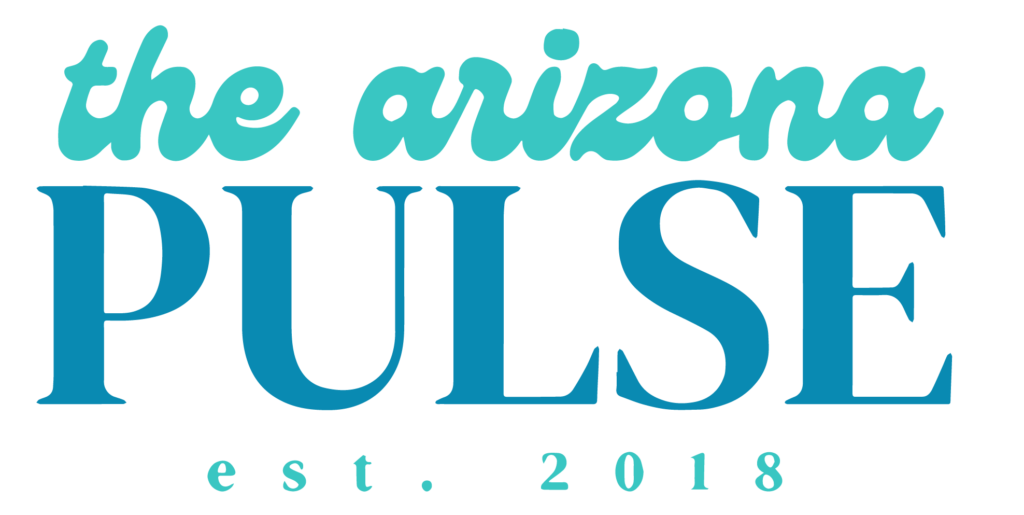Written By:

Pele Fischer, JD, Vice President of Policy & Political Affairs of ArMA
On January 25, 2018 the Arizona Legislature passed SB 1001, the Arizona Opioid Epidemic Act, which was signed into law by Governor Ducey on January 26, 2018. The Arizona Opioid Epidemic Act is an omnibus bill dedicated to curbing the opioid crisis. The legislation establishes requirements and certain limitations regarding the prescribing, administration and dispensing of schedule II opioids.
The opioid epidemic continues to grow significantly in Arizona with more than 1,125 suspected overdose deaths and 7,007 overdoses reported from June 15, 2017 to April 2018. The opioid epidemic has been at the forefront in the news locally and nationally; it is an emergent priority issue for policymakers everywhere. Unprecedented and sweeping policy changes impacting physician pain management and prescribing practices are being imposed in Arizona and many other states.
The Arizona Medical Association (ArMA) advocated on behalf of physicians and patients to improve the Arizona Opioid Epidemic Act, and will continue this work as we seek improvements and further refinements made to the legislation. We want to be part of the solution while ensuring there are not unintended consequences to patient care, the root issues of addiction are addressed, and treatment options for patients with legitimate pain are available and not stigmatized.
On April 26, 2018, a number of measures contained in Arizona SB 1001 will take effect that impact physicians directly. Below is an overview of those major provisions.
Click here to review SB 1001 in its entirety. If you are unclear about the law and its provision, make sure to review the text of the actual legislation for guidance and consult an attorney if necessary; do not solely rely on summaries, news articles, et cetera, for implementation.
1. 5-day Limit on Initial Opioid Prescriptions
Limits the initial prescription for a patient for a schedule II controlled substance that is an opioid to no more than a five (5) day supply, except an initial prescription for a schedule II controlled substance that is an opioid following a surgical procedure is limited to no more than a fourteen (14) day supply.
An initial prescription is defined as follows:
“A prescription for a schedule II controlled substance that is an opioid that has not covered any portion of the past sixty days before the date the pharmacy dispenses the current prescription as evidenced by the controlled substances prescription monitoring program’s (CSPMP) central database tracking system.”
Exceptions to the initial prescription limitations apply if the patient:
- Has an active oncology diagnosis.
- Has a traumatic injury, not including a surgical procedure.
- Is receiving hospice care.
- Is receiving end-of-life care.
- Is receiving palliative care.
- Is receiving skilled nursing facility care.
- Is receiving treatment for burns.
- Is receiving medication assisted treatment for a substance use disorder.
- Is an infant who is being weaned off opioids at the time of hospital discharge.
2. 90 MME Dosage Limits
Prohibits healthcare providers from issuing a new prescription for a schedule II controlled substance that is an opioid that exceeds 90 MMEs per day.
The 90 MME limitation does not apply to:
- A continuation of a prior prescription order that was issued within the previous 60 days.
- An opioid with a maximum approved total daily dose in the labeling as approved by the United States FDA.
- A prescription that is issued following a surgical procedure and is limited to not more than a 14 day supply.
- A patient who:
- Has an active oncology diagnosis.
- Has a traumatic injury, not including a surgical procedure.
- Is receiving hospice care.
- Is receiving end-of-life-care.
- Is receiving palliative care.
- Is receiving skilled nursing facility care.
- Is receiving treatment for burns.
- Is receiving medication-assisted treatment for substance use disorders.
- Is hospitalized.
A new prescription above 90 MME may be issued to a nonexempt patient after first consulting with a physician who is board-certificated in pain, or an opioid assistance and referral call service that is designated by DHS. If the opioid call service agrees with the higher dose, the health professional may issue a prescription for more than 90 MME. If the consulting physician is not available within 48 hours of the request the healthcare professional may prescribe and subsequently have the consultation; teleconference consultation is permissible. Physicians who are board-certified in pain may issue a prescription order above 90 MME without a consultation. If a patient is issued a new prescription above 90 MME per day, the prescriber must also prescribe Naloxone or other opioid antagonists.
Also, in response to the opioid epidemic the Arizona Department of Health Services, in conjunction with the Poison and Drug Information Centers in Arizona, has launched a 24/7 hotline which provides free, real-time consultations for clinicians with complex patients with pain and opioid use disorder. OARLine: Opioid Assistance + Referral Line for Arizona Providers: 1-888-688-4222
Additional Resources:
3. Prohibits dispensing of opioids
Prohibits healthcare professionals from dispensing Schedule II controlled substances that are opioids and establishes violations as an act of unprofessional conduct. The law allows health care professionals to dispense an opioid that is an implantable device or that is for medication-assisted treatment for substance use disorders.
4. New CME Requirements – 3 hours of opioid education
Physicians who have a DEA registration number and are renewing their licenses are required to complete three (3) hours of opioid-related, substance use disorder-related or addiction-related continuing medical education as part of the 40 hours required.
Currently, a comprehensive course is available for free to all Arizona prescribers through the University of Arizona Office of Continuing Medical Education.
5. Medical Education – 3 hours of opioid education
Requires a student enrolled in a public or private medical program in this state and whose intended degree may make the student eligible for a United States Drug Enforcement Administration registration to take at least three hours of opioid-related clinical education.
6. Controlled Substances Prescription Monitor Program (CSPMP)
Eliminates the exemption that allows a health professional to not check the CSPMP if prescribing no more than a 5-day supply when the CSPMP has been reviewed in the last 30 days.
For more information regarding prescriber mandates to use the CSPMP: https://pharmacypmp.az.gov/. For an FAQ about the Opioid Epidemic Act, click here.
There are other provisions with upcoming implementation dates you should start preparing for now. Some of these will be impacted by other legislation currently in development.
Electronic Prescribing Required for Schedule II Opioids
- Beginning January 1, 2019, e-prescribing will be required to dispense Schedule II opioid controlled substances in a county with a population of 150,000 persons or more; exception for medically assisted treatment (MAT).
- Beginning July 1, 2019, e-prescribing will be required to dispense Schedule II opioid controlled substances in a county with a population of less than 150,000 persons; exception for MAT.
- The Arizona Board of Pharmacy will be establishing a process to grant waivers from e-prescribing requirements due to lack of broadband access or hardship.
Regulation of Pain Management Clinics
- Beginning January 1, 2019, pain management clinics will be required to meet the same licensure requirements as other Arizona Department of Health Services (ADHS) licensed healthcare facilities; additional requirements for informed consent, medical director responsibilities, annual record keeping & reporting, and physical examination requirements.
- Defines “Pain Management Clinic” as a healthcare institution or private office or clinic in which a majority of patients in any month are prescribed opioids, benzodiazepines, barbiturates or Carisoprodol, not including for medication-assisted treatment, for more than 90-days in a 12-month period.
- ADHS is in the process of administrative rulemaking for implementation.






I am told there may be additional rules that apply when prescriptions are written at an Outpatient Treatment Center. Is there someone I could talk to for clarification?
What about physicians’ ability to “administer” Schedule II opioids to a patient?
Thank you for your question, Dr. Lipsky.
SB 1001 prohibits a doctor of medicine from dispensing a schedule II controlled substance that is an opioid, except for an opioid that is for medication-assisted treatment for substance use disorder. It also makes it an act of unprofessional conduct to “dispense a schedule II controlled substance that is an opioid.”
A.R.S. 32-1401 defines “dispense” as follows:
“Dispense” means the delivery by a doctor of medicine of a prescription drug or device to a patient, except for samples packaged for individual use by licensed manufacturers or repackages of drugs, and includes the prescribing, administering, packaging, labeling and security necessary to prepare and safeguard the drug or device for delivery.”
Thank you for this explanation and over view. The Opioid crisis has been in existence for a very long time and I am glad these regulations have come to fruition.
I have been a Physician Assistant for 32.5 years and have worked in CA MN & now AZ.
Working @ North Country Healthcare x 14 years has been very rewarding serving the underserved in northern AZ. However I have never prescribed more narcotics before in my entire career as I have up here. I float to almost all of our 16 satellite clinics and enjoy the travel but I am grateful for these limitations. I have been concerned about abuse & addiction issues during all the years I’ve practiced.
I have seen family members as well as patients suffer and am happy to see the state and national government now become more acutely aware of the problem. We need many more treatment facilities especially in Northern AZ where resources are few and far between. I also feel patients need a longer in pt treatment program as 28 days is often not enough for most. I am also aware of the cost burden. Again Thank you.
…. have you EVER experienced “CHRONIC PAIN”?!?!?! I have for 14 CONTINUES YEARS! My medication IS MY SALVATION…. it dictates if i will get out of bed or even be able to take a shower. I know that some people have an addiction problem… BUT, SOME PEOPLE HAVE LEGITIMATE CHRONIC PAIN… they did NOT ask for it! Their lives have been destroyed by IT…. and WE are left wondering how people who DO NOT have LEGITIMATE pain problems can judge the people WHO DO!
How do the new rules affect individuals who’ve been on addiction/pain management (buprenorphine/naloxone) medication, while also being treated with a low-dose benzodiazepine for depression and anxiety disorder, successfully for 3 years (no increases or early dispensing, clean U/A’s every 3months, anxiety and chronic pain mostly controlled)?
The benzodiazepine rx resulted from a change in depression medication, with the new medicine stopping the extreme weight increases, leading to cardiovascular issues, in addition to no longer managing depression. Vistiril and Buspar have also been tried in combination with new effective antidepressant, with little to no effect on anxiety. Patient also engages in talk therapy weekly, as many of her medical/psycological issues are related to ongoing outside familial circumstances.
Must the patient choose between pain or anxiety relief?
The legislation does not specifically address co-prescribing of opioids and benzodiazepines. The CDC and the Arizona Opioid Prescribing Guidelines provide input into this topic:
http://azdhs.gov/documents/audiences/clinicians/clinical-guidelines-recommendations/prescribing-guidelines/az-opioid-prescribing-guidelines.pdf
https://www.cdc.gov/drugoverdose/prescribing/guideline.html
Are palliative and end of life patients exempt from the requirement for naloxone for greater than 90 MMEs? How best should prescribers make clear the patient is receiving opioids as part of palliative care?
The 90 MME limitation does not apply to:
A patient who:
– Is receiving end-of-life-care.
– Is receiving palliative care.
We cannot provide legal advice, nor anticipate how the statute will be interpreted/enforced.
In general, it is always a best practice to have a fully documented patient record that clearly documents all of the specifics, details and medical decision making anytime a physician is going to deviate from a policy, guideline, etc.
I am a cancer survivor left in pain by the cancer treatments I received 7 years ago. I’ll never understand why cancer survivors arent exempt. I have been tapered down 30ml scents the new law. Now I will be living most of my life in bed. Its cruel what’s happened to me